Training for Life: The Story of Sarah True
In the past two years, Olympic triathlete Sarah True has had more than the usual challenges to face as she’s transitioned to racing as an Ironman pro. The Hanover, N.H. native opens up now about her struggles with depression.
By Lisa Lynn | Photos by Ansel Dickey
On a rainy Monday in April, Sarah Groff True makes the short drive from her home near Hanover, N.H. to meet me for lunch in White River Junction. It’s the day of the Boston Marathon and her husband Ben True, the first American man to win the New York Half Marathon, is home watching the race coverage on TV.
A two-time Olympic triathlete and Ironman contender, Sarah, 36, is unmistakable. Wearing a fitted hoodie with the name of her sponsor “Specialized” emblazoned across it, she is lean and strong and moves with the light, coltish gait of an athlete.

A former Middlebury College All-American swimmer, Sarah is articulate and thoughtful when she speaks. Her blue-green eyes light up as she smiles, which she does a lot, often laughing out loud. Her Twitter feed is both inspiring and hilarious—witness posts such as “The best lessons in body acceptance come from many hours of sharing a locker room with senior citizens.” “Humor is what saves me,” she says as we order.
Funny, smart, strong and strikingly beautiful, Sarah True is one of the very best triathletes in the world.
But what she wants to talk about now is depression.
“I think the low-point came about a year after the Rio Olympics, in July 2017,” she says as her voice lowers. “Ben and I were driving over to King Arthur Flour to get a sandwich and I pulled into a parking spot and I just broke down. I told Ben I’d been having suicidal thoughts.”
Depression was something she’d been battling off and on since she was a teenager. “I think he knew that, but he didn’t know how deep or how bad it had become.”
In 2016, Sarah and Ben True were being touted as a power couple among elite athletes. Sarah had finished fourth at the Olympic Games triathlon (1.5K swim/40K bike/10K run) in London in 2012—with a time that was just 10 seconds shy of the bronze medal. She was a favorite for the Rio games. Ben, who ran a sub-four-minute mile while he was at Dartmouth and has won the 15K nationals, was on pace to make the Olympic track team.
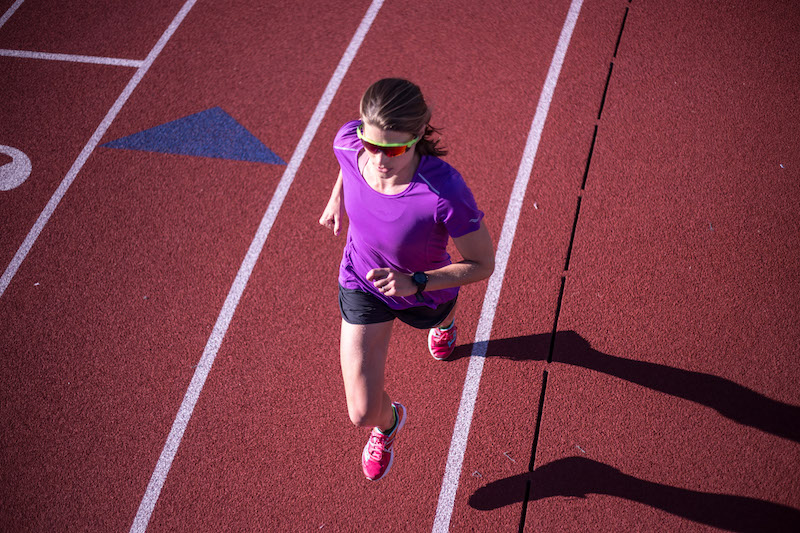
But at the 5000-meter Olympic trials, Ben finished fifth, 0.48 seconds behind third-place finisher Paul Chelimo, who went on to win the silver medal in Rio. Sarah, who was second in the 2014 ITU World Series, already had an Olympic spot.
“I was fit, and I was ready,” she said. But in Rio something happened. As she got out of the water from her swim, her leg began to spasm and cramp. Eventually, she had to walk her bike off the course.
“I felt at the time that I had failed everyone—myself, Ben, my country, my federation,” she remembers. That was the start of two long, dark years—a time of struggle that she finally started to talk about on social media.
The Low Blow
“Athletes come in different packages. Like with anything, if you learn how to manage your depression, there’s no reason you can’t succeed,” Sarah posted on Twitter in September 2017. Since then, fighting depression has become a cause she has embraced.
“As professional athletes, posting on social media is written into our contracts. When I went through a period of deep depression, social media was actually a trigger for me as it’s so comparative. I was constantly thinking ‘I’m horrible, my life is horrible and this is just making me feel worse.’ When I came out of it, I decided I had a choice to write my own narrative. I now see it as a privilege: I have a platform to share my story and there’s almost an obligation to show the other side: as athletes we’re not perfect, it’s not always happy and wonderful. And it’s a chance to share the skills that I acquired [to deal with depression].”
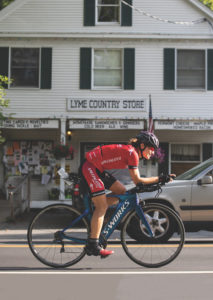
In recent years, athletes ranging from Olympic swimmer Michael Phelps to former pro mountain biker Julie Furtado have started to talk about their depression and suicidal thoughts. In March, cyclist Kelly Catlin, an Olympic silver medalist who was pursuing a graduate degree in engineering at Stanford, was an accomplished violinist and fluent in Chinese, killed herself. A year before, she had suffered a concussion, and this was her second suicide attempt. She was 23.
“In the past year, I’ve also had a handful of friends who are elite athletes or former athletes commit suicide,” says Sarah—among those, her friend the Australian cyclist Jonathan Cantwell. “There are so few resources to help athletes get through this. While I was depressed, I Googled ‘Resources for athletes with depression’ and there was nothing.”
As Sarah acknowledges, there is also no hard evidence that elite athletes are any more prone to depression than the rest of the population. “It’s not an athlete thing, it’s a human thing,” she says.
A 2016 meta review by New Zealand researchers of more than 60 studies concluded that “athletes experience a broadly comparable risk of high-prevalence mental disorders (i.e. anxiety, depression) relative to the general population.” And a recent study by Harvard-affiliated researchers (published in January 2019 by the journal JAMA Psychiatry) found, conversely that among a general population “physical activity is associated with reduced risk for depression.”
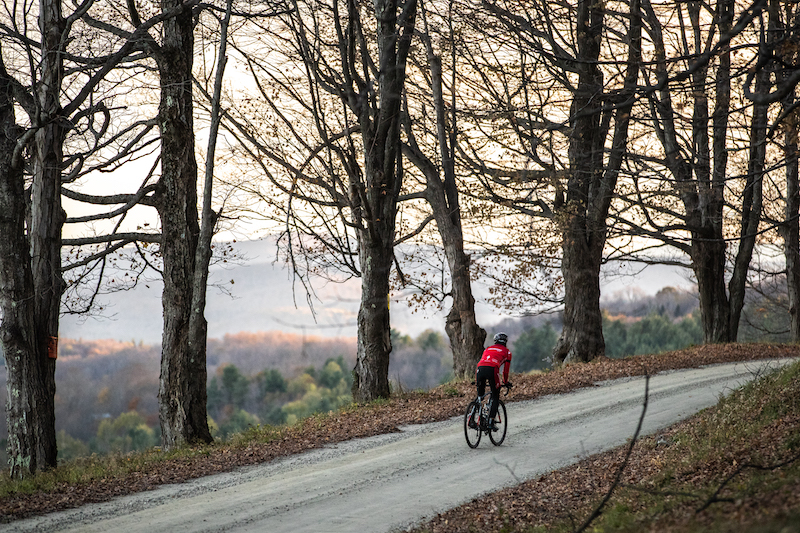
Yet, as Sarah says, “In elite sports, there are a lot of triggers for depression and it’s especially hard when athletes retire or face an injury. Suddenly, something their whole life has been focused around isn’t there anymore. Plus, there’s the stress that we face on a daily basis with our bodies, the pressure to perform and to be role models and, of course, the hormones. When your body is stressed it impacts serotonin levels.”
A Daily Grind
Life in the True household is, in some ways, no different than that for any other working couple. “I usually get up around 7 a.m., brew some coffee, make oatmeal or bagel with peanut butter and check my emails before I start my workouts. Ben then wakes up two hours later and does his thing,” Sarah says. The couple don’t train together and because of their schedules, only get to watch a handful of each other’s races. For a while, Sarah and Ben were both working with two-time Olympian and Boston Marathon winner Des Linden and her husband Ryan on a brand of coffee, Linden + True, but recently they’ve stepped away. “It was just too much and with them in the Midwest, too hard working across distance,” Sarah says.
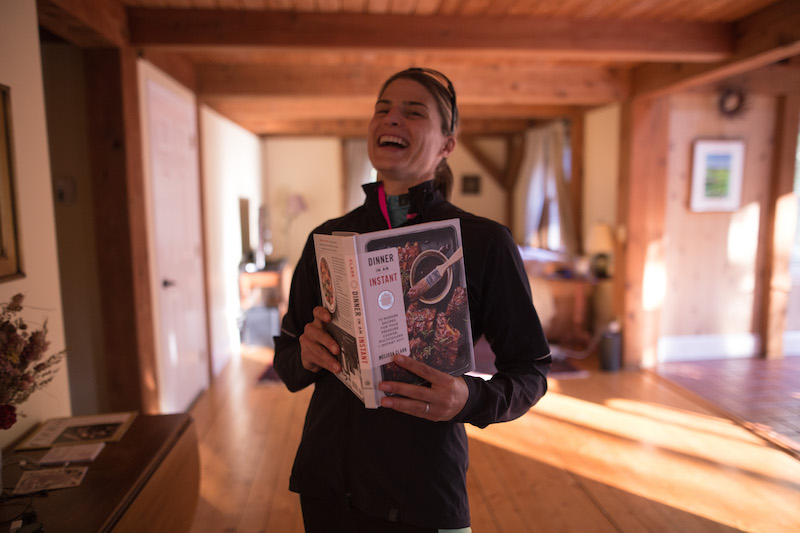
Now that she has switched to training for Ironman distance races, (2.5-mile swims, 112-mile bikes followed by a 26.2-mile run) ‘workouts’ for Sarah mean training 25 or 30 hours a week. She swims 5,000 yards, does 45 minutes of strength training and runs distances, with mandatory 20-minute power naps in between. Her bike rides on her time trial bike often take her deep into the backroads of Vermont. Sarah works with a German coach who sends her workouts online. On rainy cold days like Vermont has seen this spring, she just gets out there, whether she’s dealing with depression or not.
“It’s my job, I have to,” she says. “But there are some days I just tell my coach – you know that workout you gave me? Well, we’re doing it indoors today. Training as an elite athlete in the Upper Valley is not always easy. “I can ride with guys and always be challenged,” says Sarah, “but for Ben it’s harder. There are only a handful of people in the world who can keep up with him,” she says.
Ben has tried to recruit Kenyan runner Sam Chelanga to come live near them. “It was pretty funny to see Ben, who is over 6 feet, running the back roads with this 5-foot, 2-inch Kenyan.” Chelanga ended up moving elsewhere so Ben is still looking for a training partner, “he’s even offered to pay a salary,” says Sarah.
The couple spends time in the winter training in Arizona, but they always return to the Upper Valley, where Sarah was born. Her parents still have a farm nearby and her brother, Adam Groff is a physician nearby. Her sister, the award-winning author Lauren Groff (best known for Fates and Furies), spends summers in New Hampshire. “When I was going through depression, I spent a lot of time with my family. My brother, of course, told me I should be on meds and my sister, that I should write,” Sarah says with a laugh.
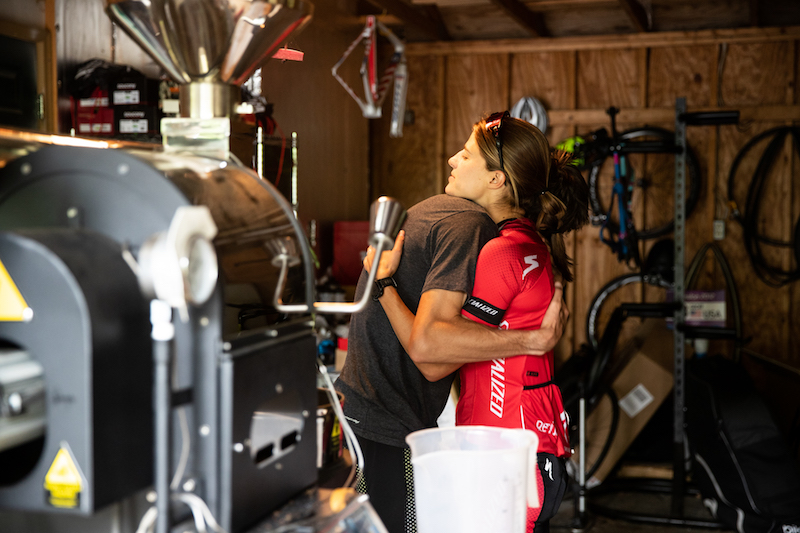
Ben returned to the area in 2010. They were set up on a date by Sarah’s agent and were married in 2014. “We love living here, being able to train on these beautiful, quiet roads and having so much great, farm-fresh food around,” says Sarah, who loves to cook. “Even more so, here we can just be ourselves. In Boulder, where I lived for a while, you’re always identified as an elite athlete. Here, the other day this guy on a bike ride recognized me, but he said, ‘Oh, you’re the girl who brings the blueberry bars to the bike shop.’ It was only later on that he was kind of embarrassed and said, ‘I had no idea you were an Olympic athlete.’ I love that, I want to be known as the blueberry-bar girl.”
This Too Shall Pass
Sarah was in her 20s and training in Colorado Springs, Colo., when her coach came up to her after a workout one day. “He was someone who had battled severe depression and he took me aside and instead of saying ‘there’s something wrong with you’ he said, ‘there’s this thing that you have, and I have had it too, but you can work through it. It’s going to be ok and you’re going to be successful.’ I don’t think he realized the impact he had on me.”
Sarah began working with a therapist and, in her words, chipping away at it. “It’s easier now that I can recognize it,” she says. “I have two mantras. One is ‘these are just thoughts’ and the other is ‘this too shall pass.’ As an athlete you get accustomed to discomfort and if you start trying to translate that to mental health it’s easier to accept it. It’s like any other injury or medical condition, you just have to train around it.”
After the Rio Olympics Sarah didn’t dial back on her workouts but she changed the intensity and began to focus on endurance, rather than speed, with an eye to switching to distance and competing in her first Ironman, the European Championship in Frankfurt, Germany. “Coming into it, I really wasn’t sure if I was ready,” she recalls. “I’d never run or biked those distances. I asked my coach what pace I should be at and he just shrugged and said, ‘you won’t know until you’re there and in it.”
On July 18, 2018 in Frankfurt, almost exactly a year after she had pulled into the parking lot, sobbing, Sarah had what she describes as one of the happiest moments in recent years. “Coming into the finish line and knowing I just did something I didn’t think I could do was awesome,” she says beaming. “I finally felt joy again.” What she doesn’t mention is that in her first Ironman she blew the triathlon world’s mind by finishing second among seasoned pros (Daniela Ryf, the four-time Ironman World Champion, won). Sarah posted the fastest swim (53.09) and the fastest marathon time, (2:54:48). In October, she competed at the Ironman Worlds in Kona, Hawaii and finished fourth.
“Suddenly, racing distances it wasn’t so much about competing against someone else but just proving to myself that I could do this,” Sarah said. “And I got so much inspiration from seeing all the other people out there on the course—regular people who were older or overweight or were also just doing something they didn’t think they could do. When I was racing the Olympic-distance pro circuit it was just the same 70 women at events around the world. Seeing everyone else out there on the course was inspiring.”
Doing things she didn’t think she could do and competing without an expectation of winning is one of Sarah’s new goals. “I tried cyclocross because I thought it would be fun,” she says. It wasn’t. “I couldn’t believe how seriously everyone took it,” she says.
She was looking forward to her first gravel race, the Northeast Kingdom’s Rasputitsa. The theme of that race, this year, was Prince. “I LOVE Prince and I just may or may not have a costume,” she said with a sly smile.
The race is a benefit for Vermont’s Olympic mountain bike racer Lea Davison’s Little Bellas program for girls. “I have so much respect for Lea, she’s just one of the warmest, kindest people and I think my life would be better if I’d gotten to know her more when we were both at Middlebury College. I admire how she’s found a cause, something greater than herself to give back to.”
As we finish lunch, I point out that now, in speaking out about depression, Sarah has too. She shrugs.
“Going through the Ironman training process gave me hope for my future. Looking forward, now there’s uncertainty but it’s not scary. It’s not a void, just a blurry image—but those edges will sharpen, and things are starting to come into perspective.”
Featured Photo Caption: Sarah often trains alone, riding her time trial bike deep into the hills of Vermont. “You can’t escape hills here,” she says. “And that’s just good for training.” Photo by Ansel Dickey

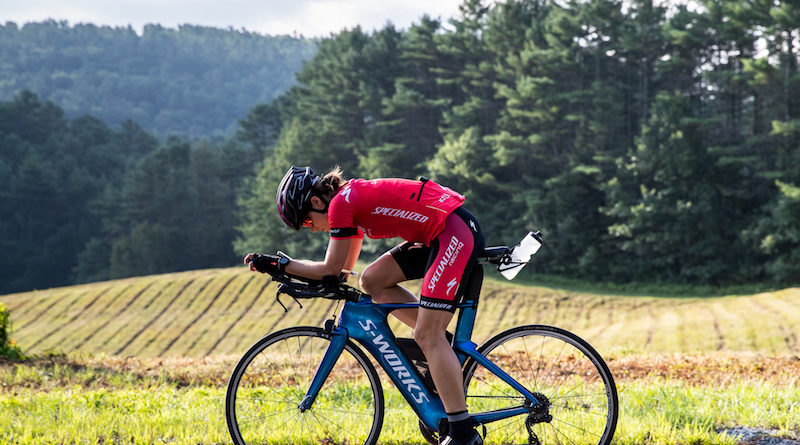
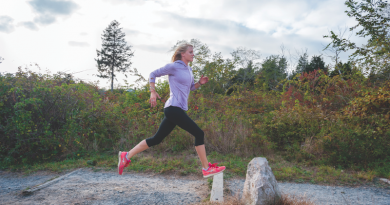
Pingback: VT SKI + RIDE Wins General Excellence in New England – VT SKI + RIDE